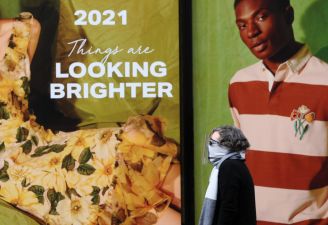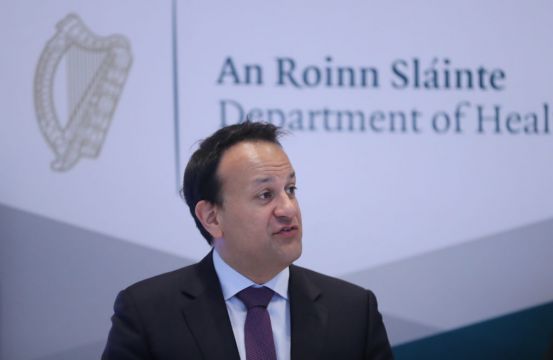Tánaiste Leo Varadkar has said that today is a day of freedom thanks to the efforts of the Irish people, the HSE and businesses.
People were now free to travel anywhere on the island and to meet up with friends and family out of doors or indoors if they were vaccinated, he said.
Mr Varadkar told RTÉ radio’s Morning Ireland that 12,000 businesses will reopen and 100,000 people will return to work this week.
Pandemic financial supports would continue until the end of June at least, but would need to be phased out over time as they were being funded by borrowed money that “would not last forever”.
A “fast-track” restructuring system would be introduced, he said, as the current examinership process was too difficult and lengthy.
Some businesses would survive if they could restructure.
Any changes that come about will be done in a graduated way, he said, as even the businesses that reopen could take time to “bounce back”.
Spending boom
There would be a boom in spending initially, but that could taper off and that’s when businesses could get in trouble, he warned.
The retail sector was already changing, the pandemic accelerated that, he said, and he had been in discussions with the Mandate trade union about training and transition funds.
Alternative uses for “main street” buildings would also have to be considered, he said as footfall in centres was down dramatically.
The reopening did not mean that everything was going to go back to normal, he said. Not everyone would return to the office, there would be blended working with some working from home and going into the office only occasionally.
Mr Varadkar said that the Government supported the wider use of antigen testing as “an additional health and safety measure,” not as a substitute. However, there were concerns about them giving people “false reassurance,” he said.
Antigen testing could help students get back to campus, new guidance would be issued for businesses about using rapid testing, but it was not being used as widely as he would like and he warned it was “belt and braces and keep the trousers on.”
Mr Varadkar pointed out that Lidl offers antigen testing to all its staff every week. He disagreed with their advert at the weekend which could have sent the message that using the test meant people were clear to mix at events like a barbecue.
Just because a person had a negative rapid test could give people a false sense of security.
When asked if the Government would pay for widespread antigen testing, Mr Varadkar said that “by and large” businesses should pay for the tests themselves and put it down as a business expense.
Johnson & Johnson vaccine

It won’t be long before appointments will open for people in their 40s, he said, it made sense that the Johnson & Johnson vaccine would be offered to people if no other vaccines were available.
As for any surplus vaccines, there were other parts of the world which needed them, and we should donate them, he said.
On the issue of investment funds bulk buying houses, Mr Varadkar said that the Government intended to come up with a solution “in the next couple of weeks.” There were options in tax and planning.
But trying to solve the housing crisis without private finance was like “trying to box with one hand behind your back,” he said. The Government needed to ensure that any action taken was appropriate.







